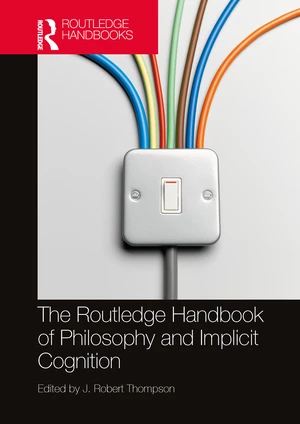Humans think of ourselves as acting according to reasons that we can typically articulate and acknowledge, though we may be reluctant to do so. Yet some of our actions do not fit this moldâthey seem to arise from motives and thoughts that appear outside of our control and our self-awareness. Rather than treating such cases as outliers, theorists now treat significant parts of the mind as operating implicitly or âbehind the scenesâ. Mental faculties like reasoning, language, and memory seem to involve this sort of implicit cognition, and many of the structures we use to understand one another seem infused with biases, perceptions, and stereotypes that have implicit features. The Routledge Handbook of Philosophy and Implicit Cognition is an outstanding guide and reference source to this important topic. Composed of more than thirty chapters by an international team of contributors, the Handbook is divided into eight clear parts: Defining Features? Identifying Implicitness Among Cognate Notions The Nature and Limits of Implicit Processing Ways of Perceiving, Knowing, Believing Language Agency and Control Social Cognition Memory Learning and Reasoning. The Routledge Handbook of Philosophy and Implicit Cognition is essential reading for students and researchers in philosophy of psychology, moral psychology, and philosophy of mind, and will also be of interest to those in related disciplines such as psychology, neuroscience, and linguistics.
Price history
Dec 31, 2022
€48.91

